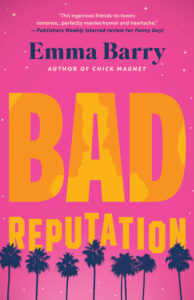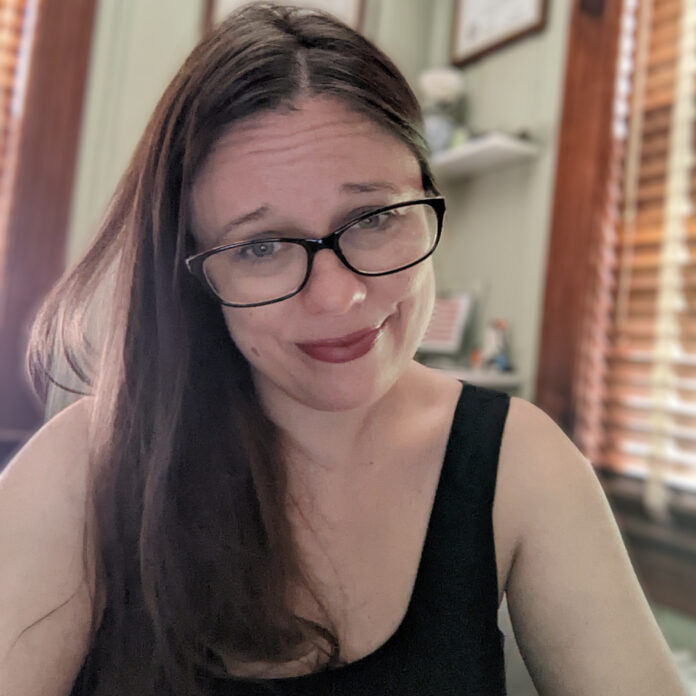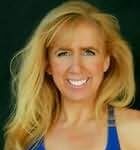Today, we welcome author Emma Barry to the blog. We’ll be talking about her latest release BAD REPUTATION. Welcome Emma. Let’s begin with what inspired you to start writing novels and what did your journey to publication look like?
My career was an accident. I was in graduate school, studying popular novels and gender, and I realized that while I had read about romantic fiction, I had never read an actual romance novel. That seemed like a hole I needed to fill, and so I went online and searched, “What’s the best romance novel?” I read the book that topped the results—Lord of Scoundrels by Loretta Chase— and the next thing I knew, I’d read hundreds of them. I was on maternity leave, struggling to make progress on my dissertation, and wondering who the heck I was going to be when the dust cleared, and romance novels gave me back to myself.
Then because I was enjoying reading them so much, I decided to write one. Except that plan also went awry because what I wrote was terrible. Because I’m a perfectionist, I was angry that my first book was appallingly bad, and I decided to write a second one. It was better, but it still didn’t knock it out of the park. I was the thief in a movie declaring that I was going to go for one more score—just one more. Except when I finished my third book, I realized that I had a different problem: I had managed to write something good.
I ended up selling that book (and a series) to Carina Press through a pitch event on Twitter. I played around with indie for a while, and then I found an amazing agent and I’ve been publishing with Montlake for the last few years. It’s been total serendipity.
What inspired you to write BAD REPUTATION?
BAD REPUTATION is the “delete everything and totally rewrite with the same dynamic” book I drafted almost a decade ago, a romance between a golden retriever of a movie star and a hardware store owner with a film festival setting. I had wanted to write about the celebrity culture of the early 2000s, which seemed particularly toxic to me. I was interested in what it would look like to get a do-over on your career if everyone thinks they know who you are, but you know that they’re wrong.
For many reasons, that earlier book didn’t quite work, but the characters had been in my head ever since. When my editor, my agent, and myself were talking about my next project, the old book came up, and my editor suggested that it might be interesting if it took place during filming, rather than during promotion. I had read one of Walter Scott’s Waverley novels and had thought it would make a good movie, and as soon as she said it, all the pieces clicked into place.
So many things have happened since I wrote the first version of the book—the Harvey Weinstein story, #MeToo, the rise of Bridgerton and Outlander, and discourse about intimacy coordinators—and being able to integrate all of that into this new version changed everything for the better.
What are some recurring themes in your work?
I always write about characters who are having crises in their professional lives. My own work experiences have been all over the place: I interned at feminist non-profits, I was an aide on Capitol Hill, I went to graduate school, I taught composition as an adjunct instructor, and now I’m a novelist and a lecturer. And while I know intellectually that I can’t be reduced to who signs my paycheck, it’s been hard to absorb that emotionally. I have experienced a lot of professional angst, and even when I don’t mean to project that onto my characters, I can’t seem to stop doing it. It’s my core story.
How do you approach the research process for your books? Did you learn anything that surprised you when researching BAD REPUTATION?
We’ve established that I am a dork, and so I won’t lose anything by telling you that I give myself homework for every book. Sometimes it’s just reading, other times it involves interviews, and occasionally, I’ve learned how to do something. I’m fascinated by the arcane and specific knowledge that we pick up because of our jobs or our hobbies, and I always want to integrate that into my books.
For BAD REPUTATION, I read sixteen contemporary Hollywood memoirs, mostly by actors but a few by journalists, writers, and directors. I’ve always loved movies, but most of my previous research had been on the golden age Hollywood, and things are different now. I also found a beta reader who had worked on costumes and makeup for films, and she helped me avoid some inaccuracies and flubs.
For obvious reasons, I was interested in how filmmakers approach steamy scenes. I had no idea that strapless thongs are a thing, or that intimacy coordinators frequently employ a Pilates ball so that there isn’t genital-to-genital contact between actors and to help simulate bouncing. My main takeaway is that filming of on-screen sex is anything but sexy. I am honestly completely in awe of the Hollywood magic that transforms the raw footage into something swoony.
Do you use or create a playlist of songs for writing? Did you create a playlist for BAD REPUTATION?
Oh yes, this is a substantial part of my writing process. Nothing enables procrastination quite like making a book playlist! But I also find it helps me recapture the vibe of a book. One thing about traditional publishing that can be difficult to deal with is that you write, revise, and promote the book over a two-year timeline, if you’re lucky. How on earth do you recapture the mood months or even years later? Music helps me transition between projects.
What is the main message you hope readers will gain from this novel?
At the start of BAD REPUTATION, Cole and Maggie are worried about their images. They both feel misunderstood, which causes them anxiety. They’re trying so hard to do the decent thing and to live lives that matter, and they’re willing to deny themselves so much in pursuit of those goals, including love. It’s a book about what it means to do the right thing and how much you should care about what others think about you.
The playlist for BAD REPUTATION is here. Some of the key tracks are “Cinema” by Benny Benassi, “So Nice” by Carly Rae Jepsen, and “Why Am I Like This?” by Orla Gartland.
Would you like to see a film or television adaptation of BAD REPUTATION? And if so, who would you cast as your stars?
Heck yes. My fan-casting is Chris Pine as Cole—picture that moment in Wonder Woman 1984 when he mistakes the trashcan at the museum for a piece of art and tell me that you don’t see it— with Anna Kendrick as Maggie. For the secondary romance, I’d cast Florence Pugh as Tasha with Glen Powell as Ryan. I would also like to request that boygenius record a cover of Joan Jett’s “Bad Reputation” for the trailer.
Call me, Hollywood. I think this could be massive.
What are you working on now?
I like to shift back and forth between projects with different tones and dynamics. So as a follow- up to BAD REPUTATION, I’m working on a book that’s about nice people trying to make mature and healthy choices, I was craving something angstier. My next book is about chess—no, really. I know that chess doesn’t scream mess, but you’ll have to trust me. Here’s the elevator pitch:
A writer/director options the memoir of the ex who left him shattered, the bad girl of the chess world. As they work together to adapt her book, they get caught in a dangerous game: believing that now, things could work. But will secrets tear them apart a second time?
One thing is for sure, it couldn’t be more different than BAD REPUTATION, but at the same time, these books take place in the same world and they’re both very, very me. I hope everyone is going to love it.
Thank you very much for joining us today!
Reader’s BAD REPUTATION has just released. Here’s a quick look:::
 In this whip-smart workplace romance from the author of Chick Magnet, a former teen star and an accidental intimacy coordinator have a plan to fix their images—and falling in love would ruin everything.
In this whip-smart workplace romance from the author of Chick Magnet, a former teen star and an accidental intimacy coordinator have a plan to fix their images—and falling in love would ruin everything.
Cole James’s reputation as Hollywood’s favorite himbo no longer suits him. His fans can’t separate the real man from the character he played on a soapy teen drama decades ago. But that’s going to change with Waverley, the hit streaming historical romance series.
Maggie Niven hates her own notoriety. Fired for directing a divisive play, Maggie takes her fight against censorship public. When Hollywood comes calling, she becomes the new intimacy coordinator for Waverley. But it’s harder than she imagined to focus on the job.
Cole isn’t what she expected—and Maggie is more than he dreamed of. As filming gets underway, the cast’s old traumas lead to real intimacy, and Cole and Maggie struggle with feelings they shouldn’t have. Having an affair on set could destroy his comeback and her new career.
The show must go on. But if Cole and Maggie want a happy ending, they’ll have to start doing things their own way.






